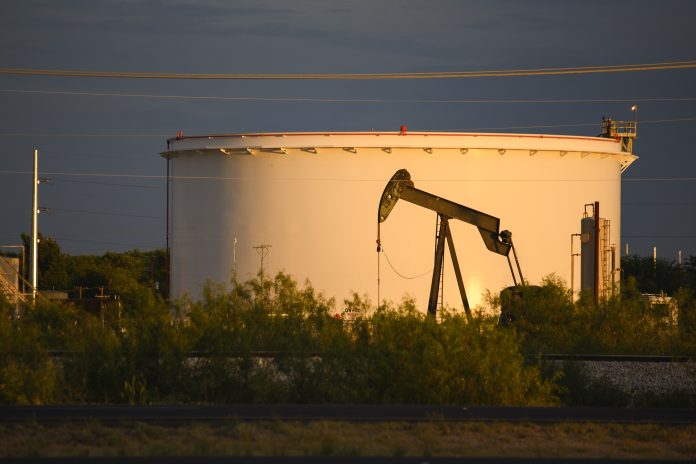
How the ongoing battle royale between the energy industry and federal regulatory agencies will resolve itself is uncertain, but energy experts vow an all-out war because too much is at stake to roll over.
Odessa oilman Kirk Edwards and Waco economist Ray Perryman say radical environmentalists like the WildEarth Guardians, the U.S. Environmental Protection Agency and the U.S. Fish & Wildlife Service are ignorant.
“The Endangered Species Act has become a tool for the ultra-green movement to attempt to shut down oil and gas at every turn,” Edwards said. “Just a few years ago the Permian Basin was under siege from the Obama administration because they allowed people like the WildEarth Guardians to file lawsuits unchecked by the government that would have simply shut down any new drilling west of Odessa and into New Mexico.”

Edwards said the Permian Basin Petroleum Association joined the affray and an agreement was reached to monitor the Dunes Sagebrush Lizard in West Texas.
“It was no coincidence that the WildEarth Guardians picked something in the middle of the biggest oil-producing play in the country,” he said. “But low and behold, just as it was calmed down it is rearing its ugly head again.
“Same thing goes for the Lesser Prairie Chicken. The environmental groups are trying to get it listed as endangered In Texas, Oklahoma and New Mexico when get this, there is an active hunting season for that same bird in Kansas today. It just shows the idiocy of the national policy.
“It is 100 percent political and it has nothing to do with an actual species being endangered. This needs to be studied by Congress to make more sense of the policy and not have it used as a political weapon against the other side which you don’t like.”
Perryman said the potential issues surrounding declaring the Dunes Sagebrush Lizard or an area non-attainment designation by the EPA for alleged air pollution “could clearly be enough to trigger a review under the Major Questions Doctrine.
“As explained by the Congressional Research Service the Supreme Court declared that if an agency seeks to decide an issue of major national significance its action must be supported by clear congressional authorization,” Perryman said. “The case law related to the Major Questions Doctrine continues to evolve, but various findings of applicability and thresholds have involved billions in economic costs or $100 million in adverse impacts to the federal government.”

The economist said his company’s most recent study of the impact of activity in the Permian Basin indicates that when multiplier effects are considered the energy industry’s total annual economic benefits include $181.8 billion in gross product and over 786,200 jobs across the United States including results within Texas and New Mexico.
“Total tax collections from direct as well as indirect and induced sources from Permian Basin oil and gas activity include an estimated $34 billion in federal taxes,” he said. “These are big numbers and they greatly exceed the Major Questions Doctrine thresholds.
“Our firm has done studies on various issues in the past which demonstrated that impacts to the federal government have exceeded $100 million and have triggered the Major Questions inquiry. The numbers for the oil and gas industry are well above that threshold.”
Perryman said the actions of the EPA regarding non-attainment and the FWS’ potentially listing the lizard as endangered will be more difficult to implement if those actions are challenged under the doctrine.
“The EPA has recent experience in West Virginia with a rule being thrown out under Major Questions Doctrine and the agency would reasonably act carefully given this experience,” he said. “If such actions move forward there will doubtless be legal challenges which have a strong probability for success.”
Perryman said an endangered species designation “could be harmful to oil production in the region, particularly in New Mexico where much of the land is controlled by the Bureau of Land management.
“The Permian Basin is an essential source of fuels needed to meet global demand for the foreseeable future,” he said. “While there is a general policy bias against fossil fuels at the moment, the reality is that fossil fuels will be needed for decades to come.
“Clearly development should be undertaken responsibly and with an eye toward preserving habitat and minimizing emissions. It is normally possible to provide needed habitat with minimal disruption, as has happened before.
“At the same time, agency rulings with massive potential costs have been frequently rejected by courts. Ideally progress would be made to come up with workable solutions which would avoid major dislocations.”



